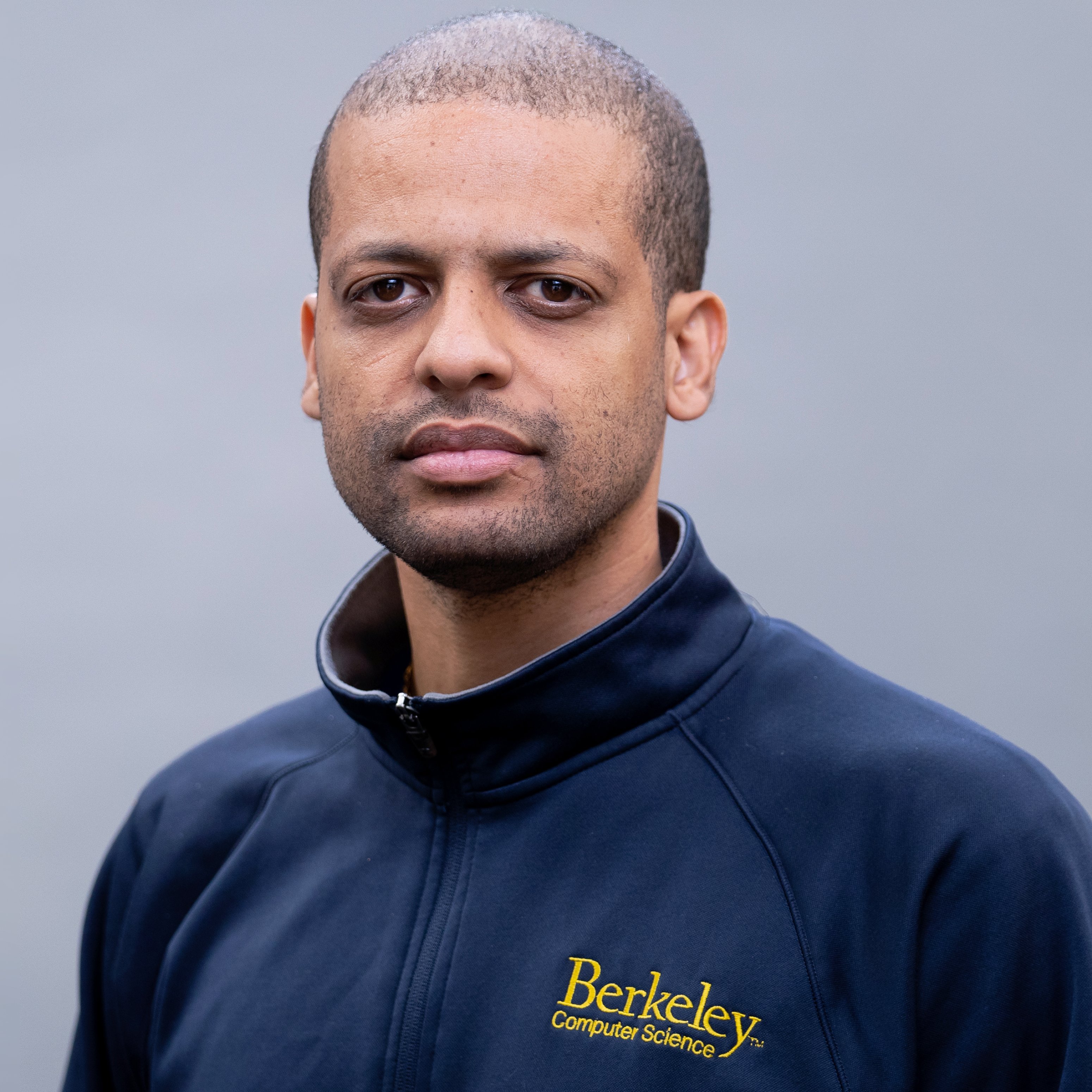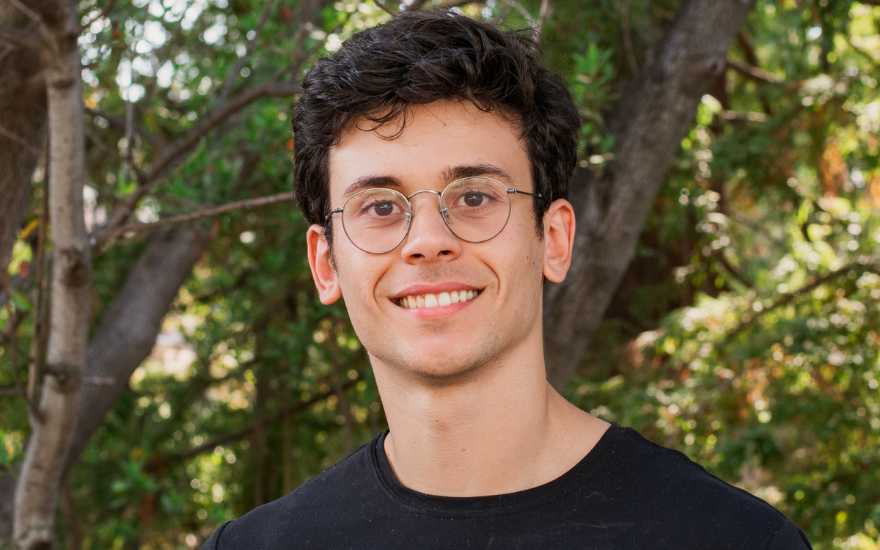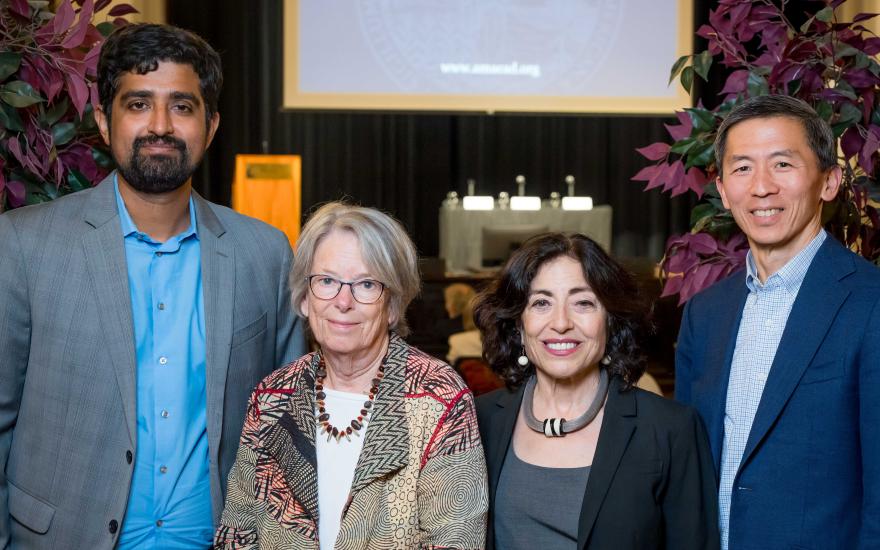A few years ago, Jelani Nelson developed an algorithm that could do what his children could do at two or three years old: count. The computer science theorist knows that sounds basic. Why study it?
Computers and cell phones are often directed to count to high numbers. Just like a person, the device needs to remember all the numbers that came before it to identify the next one. That becomes costly and slow, Nelson says. His team proved an existing method was the best way for a computer to count accurately while using minimal storage.
“We gave a mathematical formula essentially saying, ‘Any algorithm that solves this problem has to use at least this much memory,’” said Nelson, a professor at UC Berkeley’s Department of Electrical Engineering and Computer Sciences (EECS).
“Counting is a very fundamental thing. Everybody in the world learns how to count at some point,” said Nelson. “Now we know how to count the best way possible – or approximately count, I should say.”
These are the kinds of problems Nelson spends much of his days thinking about. He looks at challenges that are at the core of human thought and considers how computing models can or can’t be used to tackle them. Then others use his theories to address issues people care about in the real world.
But Nelson doesn’t just work in theory. He’s launched accessible, international coding programs, advocated for high quality public STEM education in California and, as of last fall, chairs Berkeley’s top-ranked Computer Science Division in EECS.
“I still have the feeling that, when it's your turn, you step up and do your service,” said Nelson. The EECS department is shared by Berkeley’s College of Computing, Data Science, and Society and the College of Engineering.
‘It almost feels religious’
Nelson always loved math. He taught himself to build websites using HTML in middle school, learned to program in high school and competed in competitions in college to prove he could write bug-free code the fastest.
So it perhaps wasn’t surprising when Nelson searched for a field that combined math and coding. He landed on computer science theory, where experts model computation mathematically and then test what you can and can’t do with those models.
“It's similar to the appeal of pure mathematics or philosophy or something. It almost feels religious,” said Nelson. “I get to work on these really cool foundational problems that come at the core of human thought and human knowledge, but they are related to things that people do care about in the real world.”
He completed his Ph.D. from Massachusetts Institute of Technology in 2011. Before starting at Harvard University that fall as an assistant professor, Nelson, who is half-Ethiopian, decided to spend the summer teaching in Ethiopia.
Nelson thought he’d teach a graduate-level course at a university there. The country needs more computer science doctorates, and they don’t have many professors that can teach those advanced courses, he said. But “things weren't really progressing at the rate I was hoping.” So he pivoted.
Two coding summer programs and a Caribbean reggae star
Nelson instead created a free, four-week intensive coding program for Ethiopian high school students, which he called AddisCoder. He held it at a university that volunteered some classrooms at its campus in Addis Ababa, the nation’s capital.
While he’d intended to teach the roughly 80 students about algorithms, he found most didn’t have any computer science experience. So he started by teaching them Python, a programming language. Seven of those students would go on to attend Ph.D. programs, while several more now work for major technology companies like Google and Amazon, he said.
Fourteen years in, AddisCoder has evolved. For example, Nelson noticed his first year that private school students, who tended to come from wealthier-than-average families, were overrepresented. Today, the program works with the Ethiopian Ministry of Education to identify smart, ethnically and geographically diverse public school students. AddisCoder also pays for food, housing and transportation for its participants.
“Kids who are wealthier, maybe their parents have cars and can more easily drop their kids at the program, whereas, if it's not residential, someone who's from a less wealthy family maybe has to walk or take the bus, and it's just less convenient,” said Nelson, adding that AddisCoder has now served nearly 700 students.
Others heard about AddisCoder’s success. A friend of Chronixx – the reggae star Nelson says has accrued Taylor Swift-levels of fame in the Caribbean – e-mailed Nelson in 2020 to set up a Zoom call about the program. The computer science theorist who grew up largely in the U.S. Virgin Islands thought the message was oddly-specific spam.
“I thought, ‘Well, there's no harm in jumping in a Zoom room and seeing if it really is Chronixx, and indeed, it was Chronixx,” said Nelson. “He was like, ‘I want a program like this in Jamaica, and I'll give a donation to help fund it.’”
In 2022, Nelson and a few others launched JamCoders in Kingston, Jamaica. They applied the lessons learned from the Ethiopian sister program, making the program again a four-week, residential coding program. JamCoders just finished its third summer.
‘Leading kids on a path to nowhere’
Meanwhile, Nelson had left Harvard University in 2019 to follow his partner to the San Francisco Bay Area, where she planned to complete a medical residency. He joined Berkeley as a professor, thrilled to be affiliated with the world-renowned Simons Institute for the Theory of Computing and part of the university’s “fantastic” theory community.
In 2021, Nelson and other experts became alarmed by attempts to reform guidelines for K-12 mathematics instruction in California and across the U.S. California was considering offering alternative pathways to high school juniors, where they could take a data science class instead of a traditional course more focused on algebraic concepts. These courses wouldn’t prepare students for science and technology college majors and would exacerbate education inequities, Nelson said.
This hit particularly close to home for Nelson. His grandfather grew up in poverty, but became a physician thanks, in part, to high-quality public education. Nelson grew up very differently because “just two generations ago, my grandfather had this access to opportunity that changed the trajectory of our whole family.” He saw the California proposals as a threat to the public education system that could transform so many lives.
“When I looked at what was happening with updates in California, I and many others felt that some of the new pathways that were being proposed were kind of leading kids on a path to nowhere,” said Nelson.
Nelson and others advocated in the media and to various government entities to prevent these changes. Their voices had an impact. The University of California Board of Admissions and Relations with Schools chose to maintain standard advanced mathematics requirements, a decision that had a trickle down effect to similarly limit changes in other parts of the state ecosystem.
Keeping Berkeley computer science curricula ‘fresh’
Now, Nelson is continuing to support public education through his newest role as chair of Berkeley’s Computer Science Division in EECS. He’s helping plan the future move for his group into the new Gateway building on campus, which is expected to open in 2026, and he’s collaborating to continue hiring and maintaining excellent faculty.
But Nelson really lights up when he talks about potential changes to the undergraduate computer science curriculum. A related EECS committee is considering how to keep the courses “modern and fresh and relevant,” in light of the recent surge in interest and advances in artificial intelligence and machine learning, he said.
“I’m happy with what they chose to spend time on,” Nelson said.





